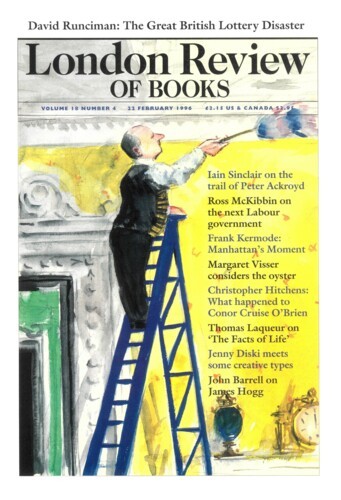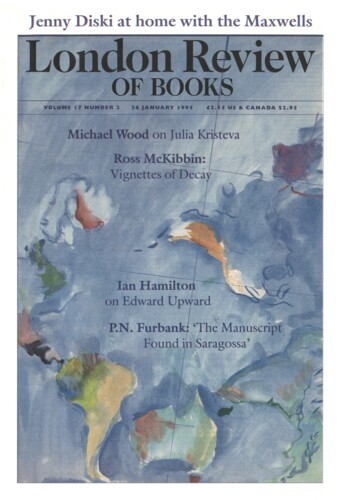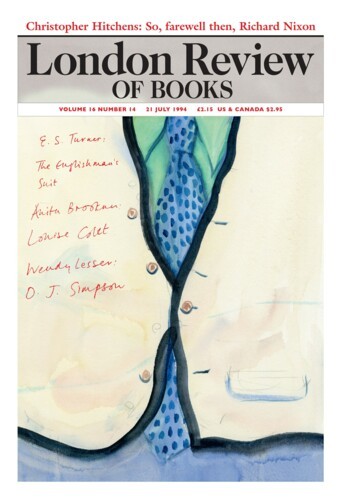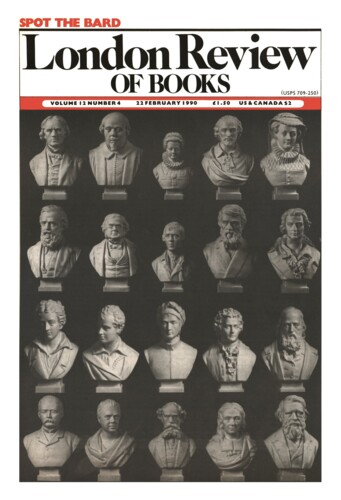Princes of Wales have always been difficult to pin down. National heroes or terrorist thugs? Reasonable coves or domestic tyrants? Friends of the people or pals of Hitler? A sort of duplicity seems to go with the job. The exchange between Owain Glyn Dŵr and Hotspur in Shakespeare’s Henry IV Part One –’
The Revolt of Owain Glyn Dŵr by R.R. Davies. The Prince’s Choice: A Personal Selection from Shakespeare
Hodder, 137 pp., £12.99, November 1995, 0 340 66039 2
Glyn Dŵr’s revolt encouraged those Welsh who had felt exiles in their own land since the victories of Edward I to pursue claims made as the original ‘Britons’. Glyn Dŵr had little trouble in linking himself with the long line of Welsh messiahs, including Arthur, who offered to expel the English and regain control of the whole island of Britain.




